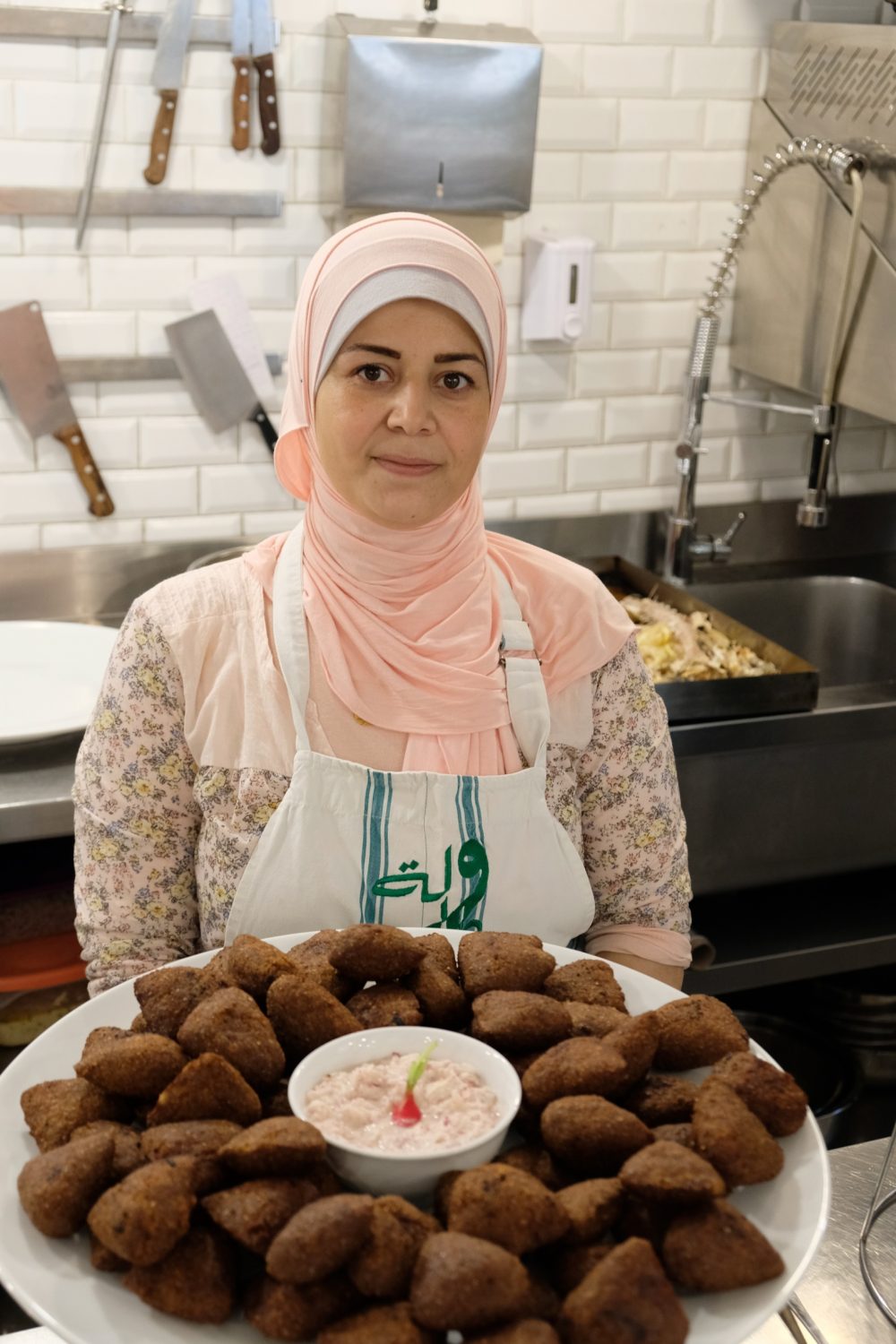
Fatiya Maraabani
Fatiya Maraabani sells kibbeh shinat at Beirut's Souk el Tayeb
I am sitting at a small, scarred wooden table. Across from me is Robert De Niro’s younger brother, if he had one who lived in Lebanon. Kamal Mouzawak, who grew up in a small town in the mountains north of Beirut during the civil war, is handsome, mellifluous and a passionate believer in the power of food to bring people together.
We are in his headquarters, the restaurant at Souk el Tayeb, a farmers market in downtown Beirut. Started in 2004, Mouzawak’s organization helps individuals make a living growing and cooking local ingredients while preserving culinary traditions and Lebanon’s rural heritage. Even Beirut is under pressure from international fast food, with huge KFC billboards lining the main drag out of town and up along the coast.
In the restaurant, local cooks are invited to prepare lunch to showcase the cooking of their regions. Today, Fatiya Maraabani is on deck, having prepared a fish tangia (not a tagine, but made with a tahini sauce and chermoula on the side), siliq mahshi (Swiss chard stuffed with rice and meat), sheikh el mahshi (roasted eggplant with ground lamb), kibbeh shinat (small purses stuffed with onions, meat and spices), and an unusual cauliflower dish made with roasted florets along with garlic, onion, cilantro, tomato paste, cornstarch and lemon juice.
Maraabani is lovely, almost seraphic, even though she has just cooked over a dozen dishes brightly displayed on platters at the serve-yourself counter. In fact, Mouzawak and Maraabani seem to share the same font of inner peace and resourcefulness. One feels barely half-alive in their presence.
As for the cauliflower recipe, we agreed with Maraabani that roasting at 500°F was easier and better than frying, another common approach. But instead of roasting, then adding a sauce, we made a wet paste of olive oil, tomato paste, tahini and cornstarch (the latter provided a crispier texture). We then finished the roasted cauliflower with cilantro and lemon to balance the richness of the tahini.
Not only was this recipe a wonderful reminder of my time with Mouzawak and Maraabani but, as with much of Lebanese cooking, the easy combination of simplicity and flavor is hard to resist.




